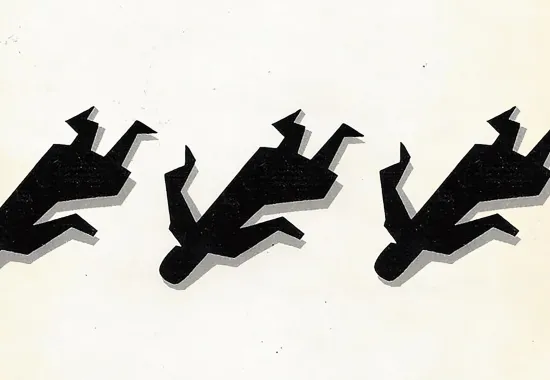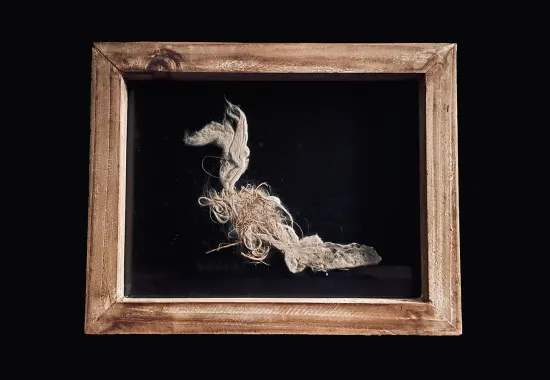The Sonnet's Strange Angel
“Through me many long dumb voices…Through me forbidden voices,” intones Whitman in “Song of Myself,” as he lists the disenfranchised Americans whose speech his cosmic persona claims to be channeling. The sonnet may make a similar, perhaps more democratic, claim because built into this form is the poem’s directive to interrupt itself. If we are open as we write, if we are listening, the new voice we hear is ours and not ours; it arrives seemingly across the ether, from the place insight, inspiration, art come from. In a previous essay I argued that the extreme compression of the sonnet can startle us into new syntactical patterns. The sonnet’s volta, or turn, can pass the mic, giving air time to language that comes from a place or awareness we haven’t yet inhabited and wouldn’t otherwise be capable of finding—that “street / just out of sight,” to quote Lyrae Van Cleif-Stefanon quoting Terrance Hayes.
In a relatively subtle shift of register, a sonnet’s speaker might signal the redirection of thought with a question:
What is that sudden yelp upon the air?
—Thom Gunn, “From the Highest Camp”
What was it it whispered?
—Robert Frost, “Mowing”
But for the purpose of inspiring poetic practice, an especially useful turn is the overtly dramatic one that interpolates dialogue from a wholly new speaker. That the poem will turn is predictable; what this new voice will say is not.
‘Noli me tangere for Cesars I ame,
And wild for to hold though I seme tame.’
—Thomas Wyatt, “Whoso list to hounte I know where there is an hynde”
‘My name is Ozymandias, king of kings:
‘Keep, ancient lands, your storied pomp!’ cried she,
With silent lips. ‘Give me your tired, your poor,
Your huddled masses yearning to breathe free,
The wretched refuse of your teeming shore,
Send these, the homeless tempest-tost to me,
I lift my lamp beside the golden door!’
—Emma Lazarus, “The New Colossus”
‘That’s disgusting.’ You said that.
—Molly Peacock, “The Lull”
Just like that, there are two actors; what was a monologue is now a scene. (There’s a reason Shakespeare, as a playwright, was so deft with sonnets.) Inviting an outside speaker onto the stage of a sonnet is particularly thrilling because the tight structure amplifies the effect of this new presence. The poem’s momentum, instead of rumbling like a bowling ball inexorably toward the waiting pins, now rebounds its pinball energy in unexpected directions as the poet tries to keep up.
Well, she told me I had an aura. ‘What?”’ I said.
‘An aura,’ she said. ‘I heered you,’ I said, ‘but
you ain’t significating.’
—Hayden Carruth, “Sonnet”
After nights of calling I’d got to know the voice
of this white boy who said I’m sorry to tell you this,
Alberta, but he’s been here every time you called.
He won’t come to the phone. All of the other Negro
guys are laughing at you. You shouldn’t call again;
he’s not worth it. Girl, that nigger broke my heart.
—Marilyn Nelson, “Beauty Shoppe”
The first speakers in some sonnets start out strong but argue themselves quickly into an impasse, that place of internal, labrynthine stuckness. In such cases, the gesture of handing off the poem shows the way out and gets the lines moving again. (The gesture can be literal, in the case of collaborative sonnets.) So Robinson Jeffers can exhaust a speaker in an octet about creative collapse—
‘I hate my verses, every line, every word.
Oh pale and brittle pencils every to try...’
–and revive that speaker through the artistic coaching of these expansive lines:
Does it matter whether you hate your...self? At least
Love your eyes that can see, your mind that can
Hear the music, the thunder of the wings. Love the wild swan.
And so a near-blind Milton, his creative “talent...Lodged with me useless,” can ask one of the most anguished questions in poetry:
‘Doth God exact day-labour, light denied?’
and hear a greater wisdom, personified as Patience, make its unsparing reply,
‘God doth not need
Either man’s work or his own gifts; who best
Bear his mild yolk, they serve him best. His state
Is kingly. Thousands at his bidding speed
And post o’er land and ocean without rest:
They also serve who only stand and wait.’
In “Song of a Man Who Has Come Through,” D. H. Lawrence describes the sound of the poem’s wanting to be heard as a “knocking at the door in the night…it is the three strange angels. / Admit them, admit them.” The sonnet’s strange angel is its interrupting voice, and by giving it air time, we let the poem surprise us with what it wants to say.
Recommended
A Behind the Scenes Look at Art Selection and Cover Design for the NAR
“Doubling and the Intelligent Mistake in Georges Simenon’s Maigret’s Madwoman”
What the Birds Showed My Wounded Child, My Adaptive Adolescent, & My Wise Adult






